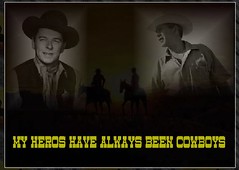Sometimes I just want to say, “Idiots! Think it through!” And then I realize the writers are probably products of public schooling…
Is not one else issitated by people who claim special status as “journalists” writing and speaking subliterate prose in a language they have (usually) spoken all their lives? A few small examples I’ve seen/heard recently will suffice to illustrate my frustration.
-
they are one in[sic]the samevs. they are one and the same -
tow the linevs. toe the line -
in masswhen the writer means en masse -
begs the question does NOT mean “asks for the question†(arrrgghhh!) it refers to the logical fallacy of petitio principii.
-
chomp at the bitvs. champ at the bit -
confusing enervate (rob of energy) with innervate (infuse with energy, stimulate)
-
using “the exception proves the rule†as an argument that where a rule fails it validates the rule (silly). “Prove†in this context means “testâ€.
-
[spoken] forte pronounced as “for-tayâ€. The “e†is silent in “forte†when used to mean “strength†as in “Logical argument is his forte.†I’ll let native English speakers say “for-tay” when they’re talking about “loudness” in a musical phrase, if they wish, because there it’s from Italian, not French, as above.
-
hale and farewellvs. hail and farewell (“hale†means “healthy†for those who insist it’s the correct word in the phrase. “Hail†means “Hello.†So there. Military folks do NOT write this wrongly more than one time…) -
“if I wasâ€â€”has no one even heard of subjunctive construction? “If I were†please.
-
upmostvs. utmost -
“wet†when “whet†is meant
-
confusing affect (usually a verb meaning to influence; when a noun, overt signs of an emotional state) and effect (usually a noun meaning a result; when a verb, cause to happen NOT influence).
-
than (comparison) vs then (when)
-
there (place), their (possessive pronoun), they’re (contraction meaning “they areâ€)
-
it’s and your’s used as possessives, when its and yours are correct (“your’s†is nonsense).
-
Heck, there are tons of misused apostrophes—a punctuation mark frequently misused in creating plurals, for heaven’s sake. *sigh*
-
to, too, two: these should be obvious
-
your vs you’re—oh, heavens. *sigh* “Your†is a possessive pronoun. “You’re†is the equivalent of “you are.â€
-
“All woks of lifeâ€â€”nah. Too easy.
-
write to choose—really? (Writer meant “right to choose”.)
-
copywrite used when copyright is meant.
-
A biggie: imply vs. infer. A speaker may imply. A hearer may infer. They are two very different processes. Most errors of argument seem to occur when a hearer infers (or pretends to) something not said and then erromeously (or disingenuously) implies (or outright states) that what they inferred is what was said… BTW, that’s also known as a non causa pro causa fallacy of argument. A common use is in straw man arguments: arguing against something not proposed or said.
Well, these are a start: irritating, one and all. (Not, as I have seen and heard, “One in all.â€)
Note: yes, I make mistakes. I claim no special training in writing; I have no editors; I am not a professional wordsmith. The examples noted above all come from websites of people who do claim special status as wordsmiths/journalists or from news broadcasts or newspapers where the writer or speaker made more than one such error—or continually repeated the same error—in the same article/newsreading. Irritating to see/hear supposed wordsmiths, especially in “Smartland,†screw up English. And it’s one of the reasons I generally avoid Mass Media Podpeople’s mangling of the “newsâ€â€”such as it is.

 Update (And I, like
Update (And I, like 